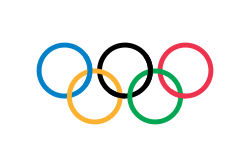| Mixed team at the 1906 Intercalated Games | |
|---|---|
 | |
| IOC code | ZZX |
| NOC | Mixed team |
| Medals |
|
| Summer appearances | |
Early Olympic Games allowed for individuals in a team to be from different nations. The International Olympic Committee (IOC) groups their results together under the mixed team designation (IOC code ZZX). There were also mixed teams at the 1906 Summer Olympics in Athens, now called the Intercalated Games and no longer considered as an official Olympic Games by the International Olympic Committee. During the 1906 Intercalated Games two teams comprising international members won medals in different events.